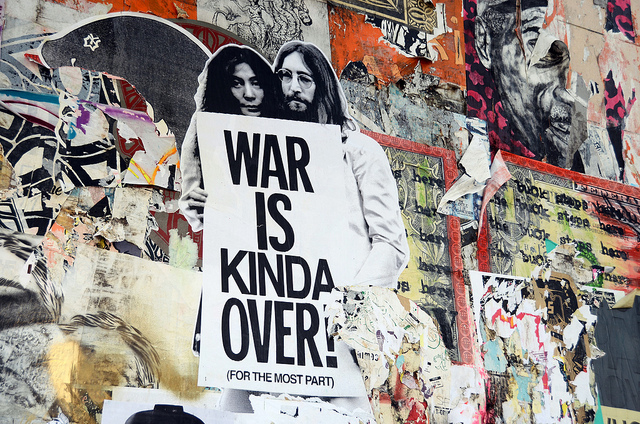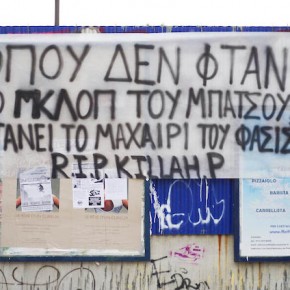The first news I received about the events now snappily referred to as the #ISIScrisis was that 500,000 thousand Iraqis were fleeing to somewhere, from somewhere, because of something. Such is the degree to which upheavals in the Middle East have become white noise.
The displacement of so many people was initially reported not in the BBC or Sky or CNN, but by some obscure Middle Eastern network whose name I cannot recall. A retweet of a retweet. It was only by chance that I noticed it at all.
The next major news crept up on me a week or so later, for I have spent several months sulkily engrossed in not doing politics. Whole divisions of the Iraqi army, I heard, had broken and run, having offered practically no resistance to a barbarian horde which had come charging out of Syria.
Since then, I have been frantically hunting for clarity, lamenting that I took my eyes off the ball in the first place.
Meanwhile, and quite true to character, most of the UK media has now turned egotistically inwards, having become absorbed in harrumphing at Tony Blair. No stranger to egotism, the former Prime Minister quickly penned a 3000 word essay, explaining that the ongoing war in Iraq was in no way, shape or form connected with the ongoing war in Iraq.

The speed of events and a media spotlight on the invaders has left little time to consider a series of questions every bit as important as the nature and character of the terrorist group.
Firstly, the collapse of the security forces occurred on a quite astonishing scale. Preeminent Middle East correspondent Patrick Cockburn said of the rout that:
“It is difficult to think of any examples in history when security forces almost a million strong, including 14 army divisions, have crumbled so immediately after attacks from an enemy force that has been estimated at between 3,000 and 5,000 strong.”
The Iraqi security forces have a particular character. The soldiers are economic conscripts, much like the American soldiers who mentored them them, and as such are not deeply imbued with loyalty to the state. The institution is also deeply corrupt, being utilised by Iraqi generals who have bought their rank to recover their investment through extortion, largely by taxing goods vehicles at unofficial roadblocks.
Moreover, despite being a national army on paper, it is a force strongly identified with the US occupation in terms of its door-kicking doctrine. In Mosul, Cockburn’s reports suggests, it behaved, and was seen by the locals, as a foreign occupying force. Perhaps not surprising given that it was trained to enforce the agenda of a foreign power.

The mass collapse may also have broader implications. In Afghanistan, for example, the policy of Western forces training their way out of the quagmire was even more central to withdrawal plans. Yet if the hugely expensive and, one would imagine, battle-hardened Iraqi security forces are so easily routed, how will the Afghan National Army bear up post draw-down?
Secondly, what has gone largely unmentioned is the spectre of oil in Iraq, and to a lesser extent, in Syria.
ISIS, for example, controls oil fields in the west of Syria, adding to its recently revealed and massive wealth.
Foreign workers are being evacuated from a major oil field in Iraq as we speak, and yet there has been little fanfare to accompany the announcement yesterday in the Financial Times that Iraq has finally reached pre-First Gulf War war levels of production, an estimated 3 million barrels a day.
Finally, the question of further intervention is on everybody’s lips. Obama, apparently without irony, dispatched to the Gulf an aircraft carrier named after the man who initiated Desert Storm. The USS George Bush, having been dispatched from loitering in the region of Crimea, has been in position for day or so now. 275 marines have been sent to buttress the existing US embassy security force. The UK has also sent a specialist military team to the country.
It is my personal view that there will be intervention in Iraq, but that it simply cannot take a conventional form in the sense of large amounts of fighting soldiers. “Boots on ground” is out of fashion. A political nightmare for all concerned.
A new dirty, deniable and distant warfare which has developed from the occupations of the 2000s – the new cocktail of drones, hired local militias, mercenaries, special forces, cyber-warfare and airstrikes may find its first full expression in this new phase of the ongoing battle for Iraq. The question is how much of it we will know about.
Photographs courtesy of Jonathan MacIntosh and Nick Thompson. Published under a Creative Commons license.





